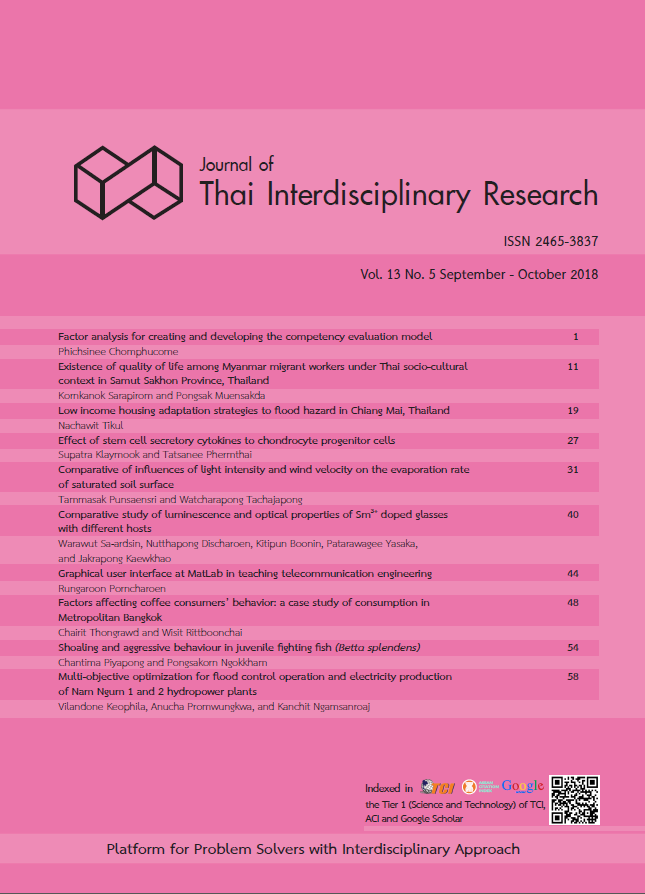Existence of quality of life among Myanmar migrant workers under Thai socio-cultural context in Samut Sakhon Province, Thailand
Main Article Content
Abstract
A qualitative investigation of the Quality of Life of Myanmar migrant workers was commissioned by the
research “Lifestyles of Myanmar Migrant Workers under Thai Social and Cultural Context: A Challenge of State
Management in the Future” (April 2016 – December 2017). This research has aimed to study the living conditions so called Quality of Life indications among Myanmar migrant workers in Samut Sakhon province of Thailand, as well as to explore new trends or existing problems so that some of the possible policy implications and state management direction would be recommended for promoting the migrants a better quality of life. With an application of WHOQOL indicators for outlining a semi-structure interview questions definitely specified on 5 domains of content analysis: Working and Living Environment, Employment and Financial, Care and Support Requirement, Community and Social Relationship, and Health Perspectives. Participant observation, in-depth interview, and focus group discussion were applied for gathering data from Myanmar migrant workers reflecting their certain livelihood. The research procedures took place at the Drop-in Center, working places and multicultural events collecting data from 36 selected participants who are working in 4 major working conditions; fishing boat, seafood processing industry, factory, and agriculture. The findings reflect insights and concerns over the Myanmar migrant’s current well-being conditions. It showed that nearly all the workers perceived quality of life as a state of general well-being, while working and living environment, employment, and social relationship conditions put forth significant effects on their perceptions of their quality of life. Most think that language adaptation will help them to have a better life. These phenomena make them lacking of recognition and accessibility of their basic rights, labor rights and public services. Significantly, relevant governmental agencies should join hands with employers to establish a common practices or appropriate regulations and policies in order to safeguard migrant’s rights, provide better opportunities, apply social standards, and generally uplift the quality of life of the migrants especially in the fishing boat and seafood processing industries.


